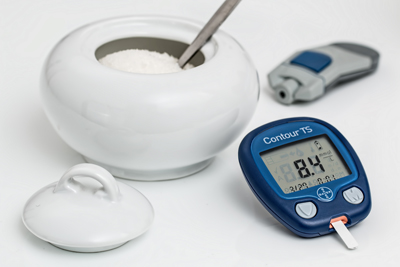As a diabetic, I am never at a loss for information on what I should eat. The other day as I read an article about 10 good food for diabetics, I came to a startling realization.
I like the foods I should eat. Fresh vegetables, fish, lean meats, and beans are among some of my most favorite foods. My problem is not that I neglect the good foods but that I also indulge in the bad foods.
Because I am a diabetic, I need to do less adding and more subtracting.
[Tweet “Sometimes, we allow habits, attitudes, and relationships that we know are not good for us.”]
Kicking It Up a Notch Spiritually
I see a parallel to my Christian life as well. We do a lot of good things we are supposed to do but add in some bad stuff as well. We recognize that because of grace, we have some liberties, but we allow our liberties to stifle our spiritual development.
Sometimes, we allow habits that we know are not good for us. We engage relationships that do not line up with God’s standards. Sometimes, we entertain thoughts and attitudes that run contrary to God’s Word.
We feel confident in our redemption, so we let down our guard against sinful actions and attitudes. Instead of asking ourselves if we should, we ask ourselves if we can.
Today, I want to challenge you to consider the grace you have received from Christ. Think about how our lives can reflect His glory. Ask yourselves some challenging questions about your behaviors, habits, and thoughts.
The Goal of the Should Questions
As a diabetic, I have a couple of diagnostic goals that serve as benchmarks for my health. I measure my blood glucose levels daily. That let’s me see how I am doing in the short term. Another diagnostic test is the a1C and it measures the amount of glucose in my blood stream over a 3-month period. That test give me a long term perspective of my health. I have goals for each of those tests.
[Tweet “The goal of the Christian life is to honor God, not satisfy ourselves.”]
What I am calling the should questions also assume a spiritual goal. They are designed to prod us toward achieving this goal. The goal is found in 1 Corinthians 10:31:
So, whether you eat or drink, or whatever you do, do all to the glory of God.
The goal of the Christian life is to glorify God, not satisfy ourselves.
Asking Should Questions
They weren’t necessarily diabetic, but the Corinthian church had issues about what they could and should eat. The Corinthian believers dealt with eating food sold in markets that nonbelievers may or may not have offered to false gods.
Paul assured them that there was no harm in eating something offered to a god who didn’t exist. But inherent in the liberty to eat was the danger of causing someone else to stumble into sin. With that in mind, Paul shares with the Corinthian believers some should questions we should ask. (1 Corinthians 6:12 and 1 Corinthians 10:23-31)
- Is it helpful? (6:12) Does this activity, relationship, habit, attitude – whatever it may be – help me and others give glory to God.
- Will it become addictive? (6:12) Habits of action are not the only addictions we face. We can also become addicted to attitudes and patterns of thought. Will this thought or behavior morph into something I will have difficulty stopping?
- Does this help others grow in their relationship with Jesus? (10:23-24) Is my action or attitude self-serving or sacrificial? Am I asserting my personal rights or, like Jesus, sacrificing myself for the good of others? If others did the same or thought the same as I do, would they draw closer to the Lord?
- Does this draw attention to God? (10:31) Will my action cause others to recognize God or me? Does my attitude or my thoughts fix my mind on Him or me? Does my behavior reflect a life in the process of becoming more like Jesus?
[Tweet “If others did the same or thought the same as I do, would they draw closer to the Lord?”]
The Should Challenge
Asking these questions daily keep us focused on Christ and remind us of His grace. We find great joy forgoing something we can do reflects more glory to Him. We can grow in our understanding of grace when we exchange our motive of “have to” with the freedom of “get to” for Jesus.

